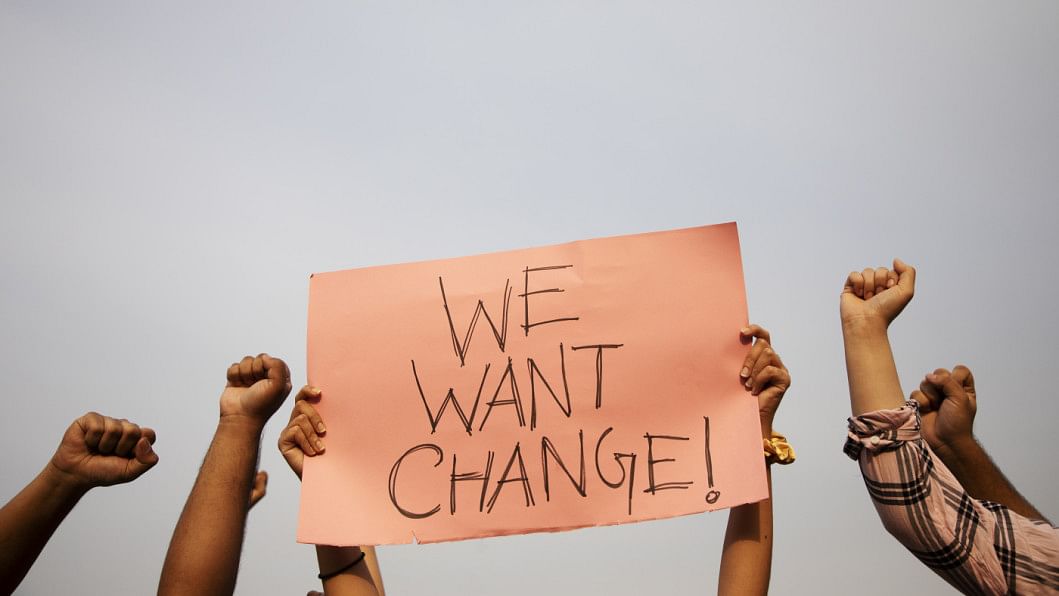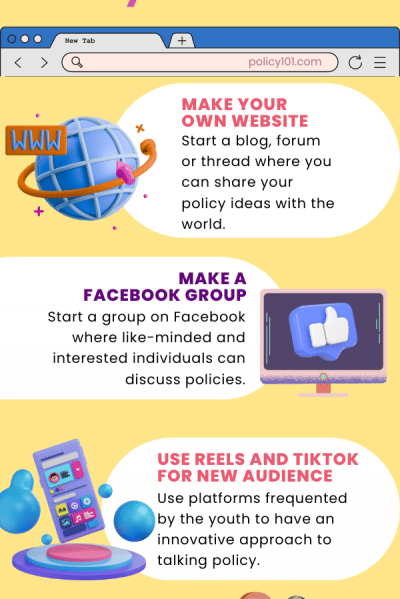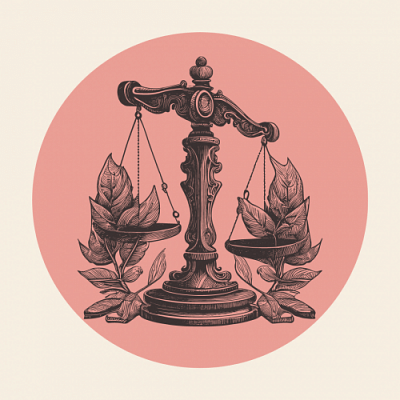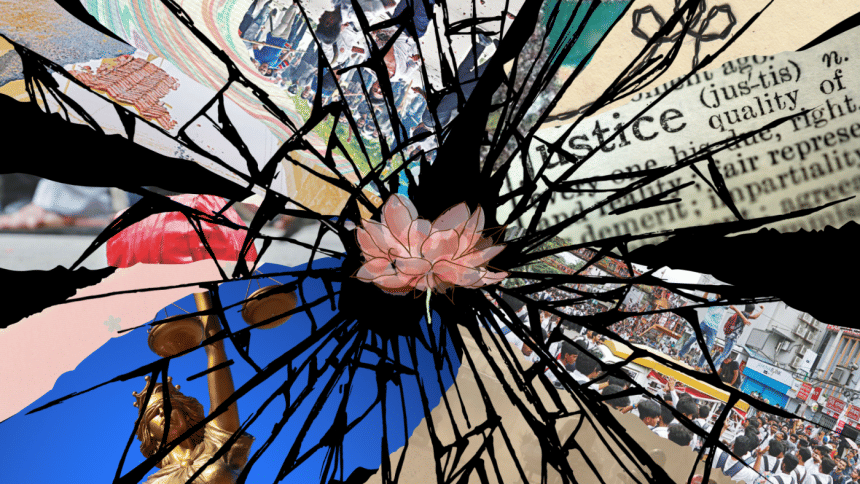The need for youth involvement in policy dialogue

Despite the severe inadequacies plaguing the footpaths of Dhaka, walking is my preferred mode of commute – provided that the place I am going to is within walkable distance amidst other factors. But I prefer it not because it is a pleasant experience but because it seems like a much better alternative than sitting in traffic for hours. While walking does impose its own set of challenges, it is made all the more harrowing because of the dire state of the walkways. It doesn't take a lot of scrutiny to observe all the things that are wrong with it.
Hence, people are forced to walk on busy roads, parkour between rickshaws, and be wary that they don't get run over by a bus. These are real problems that pose real danger to the masses. Naturally, I have found myself wondering on multiple occasions what it might take to fix it.
More often than not, my concern is reduced to despair. Not only do I not know how to express my concerns but I also realise that it will most likely not be taken any notice of, even if I do. I trivialise my own problems except these problems are shared with a thousand others.

As young people, we want to see policy changes that suit our needs. The harsh truth, however, is that to tackle policy change, we need to tread through a labyrinth of bureaucracy that most of us are not well-informed of. Even if we were to try and make proactive attempts to do anything about it, it would only expose the inefficiencies of the system.
Zaheer Abbas, Head of Reform Management at Youth Policy Forum (YPF) and a sophomore at the Dual BA Program Between Columbia University and Sciences Po, reflects on what instigated his participation in policy advocacy. "Before I started working for YPF, I began thinking about how I can get my opinion heard. This wasn't too long after the Road Safety Movement in 2018 when we literally marched onto the streets and made our demands clear. Even then, we didn't get what we asked for. And it made me realise even protesting is not a good way to get our voices forward."
As arduous as the process may be, we cannot let it force us into inaction. To better understand how we can tackle the complex process of sparking policy dialogue, we had Zaheer explain what it is that YPF does and how they do it.
"We tend to pick up work that we think is pertinent in Bangladesh. Our advocacy agenda reflects the current situation of the country. It isn't necessarily us reacting to everything that happens. Rather, we try to identify issues around which no other organisation is pushing for reform, issues that require us to intervene immediately. We also need to evaluate the long-term need for it," he said.
"The process varies on a case-to-case basis. It depends on the campaign that we are running and what our end goal is for it. For our Rohingya advocacy project, we wanted to spark public dialogue to revitalise interest in the Rohingya issue," said Zaheer. "The other project, Local Development Initiatives, was very ambitious. Through this project, we sought to bridge the gap between evidence and policy. Oftentimes, the people occupying seats in the parliament don't have data that reflects what it is that the constituents want and we wanted to help tackle this issue"

Regardless of whatever initiative is being taken though, Zaheer stressed the importance of having the right people who are willing to back the cause. For an institution of YPF's magnitude, that is possible because of the large network of people it has gathered. Through their members, they get in contact with stakeholders and policy champions, who in turn, help get them in contact with the right people in the right places.
Elsewhere, Abul Bashar Rahman, 21, an undergraduate student at the University of British Columbia is on a pursuit to highlight the impact of climate change in Bangladesh. "As a devoted climate activist, I am preparing for an ambitious mission this coming May – a bike ride across Bangladesh from Tetulia to Teknaf. My goal is to produce a documentary that showcases the experiences and preparedness of the communities most vulnerable to climate change in the country. With climate change threatening vast regions of Bangladesh, including the risk of catastrophic flooding in Dhaka, this 45-day journey holds immense personal significance for me," he said.
There is no doubt that the likes of YPF are doing invaluable work to further the interests of young people. But the issue lies in the fact that without working with such organisations, the voice of just one individual gets crushed. Even if those voices all came together to amplify their needs, it appears to be futile. In addition, stories like Bashar's is an outlier.
Samiha Tahsin Medha, 21, is a student from the Institute of Business Administration, Dhaka University. She was a vocal protester during the Road Safety Movement and talks about how she feels five years after the protest. "I feel frustrated at having my voice shrugged off. Even though I participated in the Road Safety Movement, a part of me knew that one movement was not enough to reframe the system. It is going to be a long fight. The movement has not come to a halt," she said.
Mansib Adnan*, 22, an undergraduate student pursuing a degree in software engineering in Malaysia, said, "It is enraging. We are the future of the country and that gives us a right to say what we want our future to look like. It's not like we are asking for things out of the blue. What we are asking for are basic needs and if those are not met, what are our future plans supposed to be based on?"
When the voice of an entire demographic is shunned, the consequences manifest in unsavoury ways. People begin to foster feelings of despair, and who can blame them? With an endless stream of problems stacked against them, it is only natural that they seek a way out. Brain drain has long been a problem that Bangladesh has struggled with, and opportunities being few and far between, it won't slow down anytime soon.
"I was initially supposed to stay back in Bangladesh. I didn't want to leave because I really believed that by staying back, I could make a difference and contribute to the growth of the country. However, I was very demotivated after getting a glimpse at the state of higher education in Bangladesh," said Mansib when talking about his decision to leave.

"I feel like we are already starting the see the consequences of negligence. There is this feeling that things aren't supposed to be the way they are. It is only a matter of time before the effects of undermining the opinions of an entire generation catch up to a country. This might just be a transitional phase but it can't go on like this for too long," said Samiha.
Of all the people I have spoken to for this article, there were many variables but only one constant: the need to see change implemented by the system itself. Whether they thought the entire legal framework needed an overhaul or there exists a blatant gender imbalance in professional settings, the source of the solution was clear to them. What the youth are demanding isn't out of line or radical. It isn't even entitlement that is driving their demands, nor is it the need to thrive. It is the need to feel like that they aren't constantly in the middle of a fight for survival.
Historically in Bangladesh, it is young people and students who have spearheaded change because it is them who have had the most at stake. They realised that they weren't just fighting for their future but also their legacy. The spirit of our forefathers is a testament to the fact that the need to see change is woven into our DNA.

"To ignore the opinions of the next generation is an ignorant thing to do. At YPF, we often ask ourselves why we are so passionate about fighting for change and it is just very simple. If a law were to be passed today, it is the youth who will have to bear the brunt of this law for the rest of their lives," said Zaheer.
Regardless of wherever we are headed, the youth cannot be side-lined for too long.
"When our voices are side-lined, we lose the opportunity to contribute our passion, creativity, and innovative solutions to this fight against climate change. By not including us in the conversation, you are stifling the potential for progress that our generation carries within us," iterated Bashar. "This denial of our right to a healthy and secure future only serves to deepen the chasm between generations and the sense of disillusionment many young people feel."
*Name has been changed upon request.
Abir Hossain is a sub-editor at SHOUT.

 For all latest news, follow The Daily Star's Google News channel.
For all latest news, follow The Daily Star's Google News channel. 








Comments